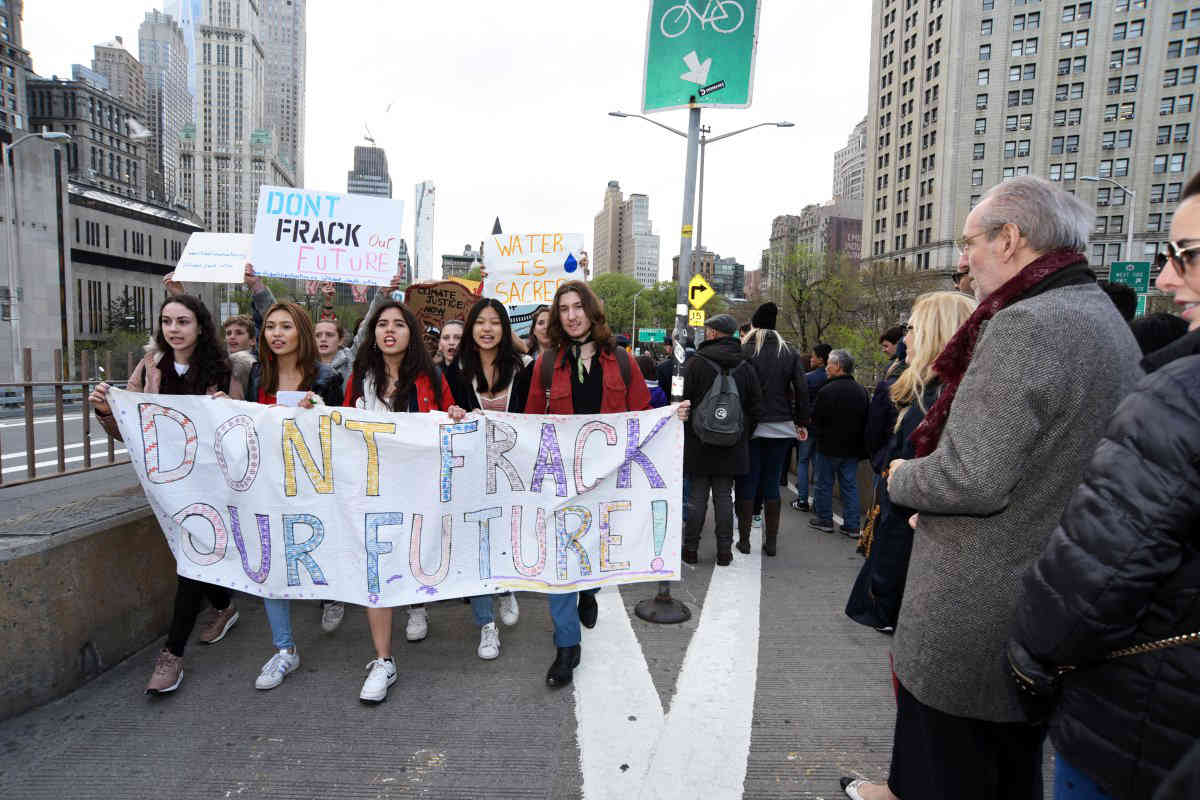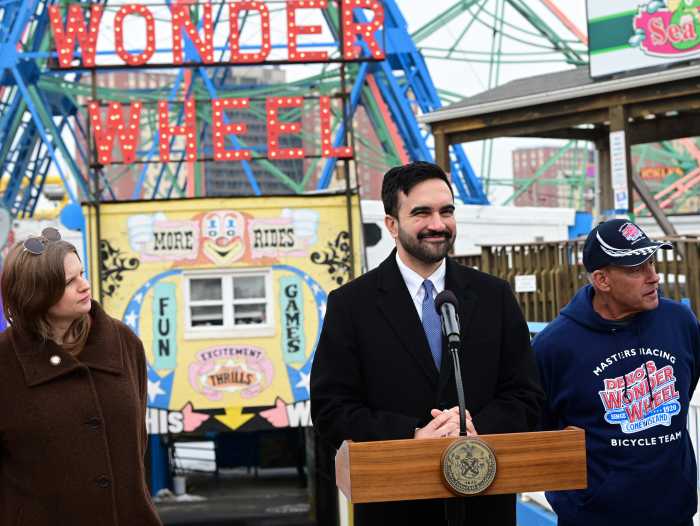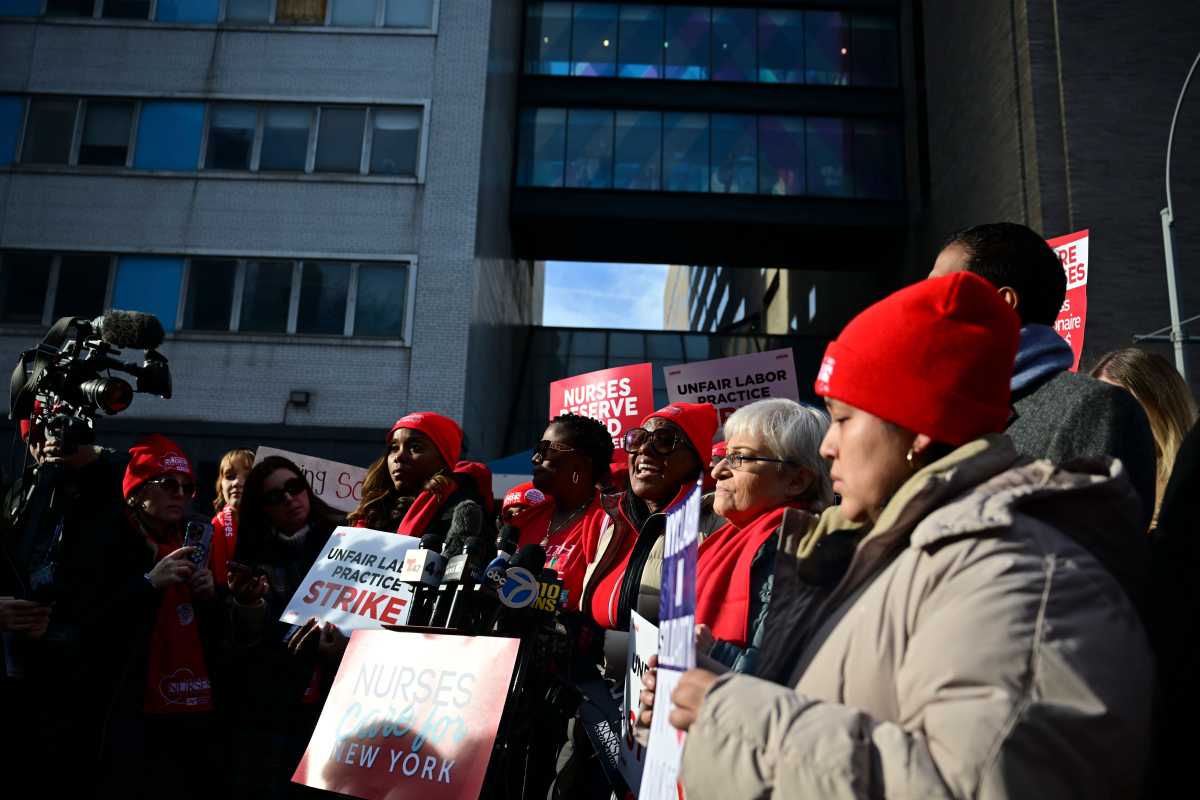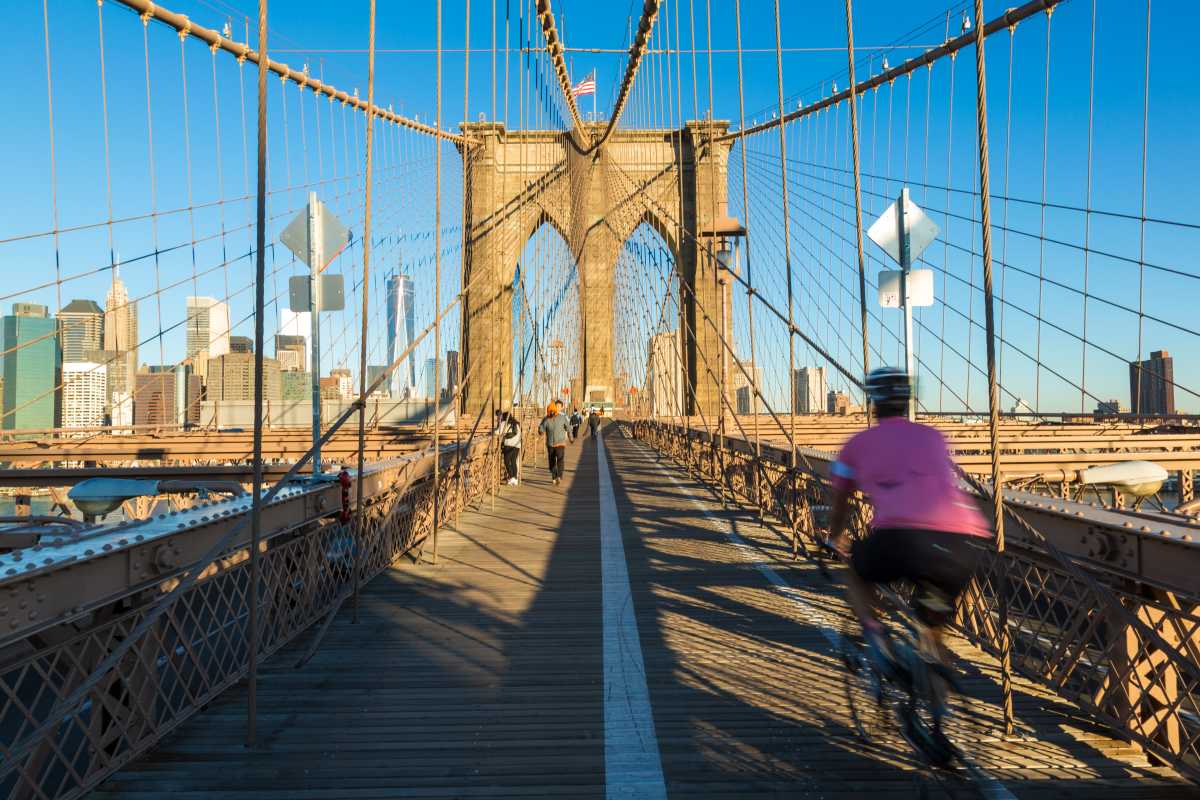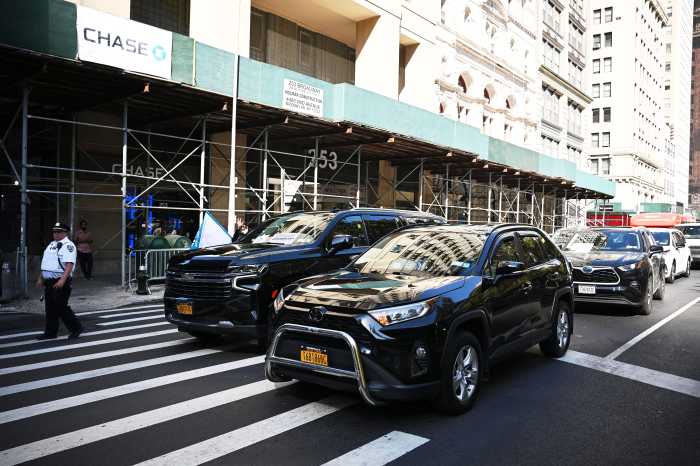Hundreds of protesters marched across the Brooklyn Bridge April 19 to demand that Gov. Andrew Cuomo reject a plan to build a massive oil pipeline off the Coney Island coast — which would transport hydrofracked gas 23 miles through New York Harbor, from New Jersey to the Rockaways.
Environmentalists, activists and protesters blasted the proposed Williams Northeast Supply Enhancement Pipeline plan on Friday, urging the governor to deny its approval.
“Gov. Cuomo has had lofty rhetoric, but the reality on the ground is that his actions stopped progress on climate change,” said environmentalist Lee Ziesche. “If he is a real climate leader there is no way he can let this go through.”
Construction of the pipeline requires approval from the Cuomo administration’s Department of Environmental Conservation, which has until May 16 to decide whether to grant permission or reject the offshore building permit.
The pipeline, proposed by Oklahoma-based energy company Williams Transco, would connect with existing pipelines to supply natural gas from the Marcellus Shale region of Pennsylvania to National Grid, a utility company which supplies 1.2 million New Yorkers in Brooklyn, Staten Island, Queens, and Long Island, according to Williams’ website.
The pipeline would take more than a year, and cost more than $900 million to construct, according to a New York City Council report.
Williams would pay the cost of the pipeline up front, then buy fracked gas from producers in Pennsylvania, process it, and ship it through the pipeline to be sold in New York by National Grid, according to the City Council report. Williams would pay itself back for the cost of construction by adding the price of construction to the cost of the gas.
In its application with the Federal Energy Regulatory Commission, Williams claimed the pipeline was necessary to meet a forecasted increase in natural gas demand from National Grid, but requested that supporting data be kept from public record because it contained “confidential commercial information.”
The pipeline would supply an additional 400,000 dt/day of natural gas to National Grid’s current pipeline capacity of 622,000 dt/day, a 64 percent increase far outpacing a 2012 City hall study that projected a mere six percent spike in natural gas demand.
Critics have argued that National Grid customers would be stuck paying higher energy costs if gas production outpaces demand.
“If demand for the additional gas fails to materialize, National Grid’s customers in Brooklyn, Queens, and Staten Island will be forced to pay for the project through higher rates,” said honchos with environmental group Surfrider Foundation.
The morning of the protest, the City Council passed a non-binding resolution in support of the protest, calling on Cuomo to reject the pipeline’s application.
In 2014, Cuomo banned hydrofracking within New York state, citing health and environmental concerns — leading critics to call his openness to hydrofracked gas pipelines hypocritical.
“Governor, you don’t get to say you banned fracked gas while allowing fracked gas to pass through this state,” City Public Advocate Jumaane Williams said at the protest. “We are at a time when your words are not enough. We have to see action.”
The Cuomo Administration initially rejected the pipeline in April 2018, citing “potentially significant environmental impacts that raised serious concerns,” but did so “without prejudice,” which allowed Williams to resubmit their application, effectively delaying a final decision for several months. That move came as Cuomo was facing a Democratic primary challenge from progressive activist Cynthia Nixon.
During that campaign, Williams Transco made two separate donations to the Democratic Governors Association for $50,000 each, according to state disclosure records. The association, which lists Cuomo among its leadership team, then made a $20,166 in-kind contribution to Cuomo’s campaign, according to campaign finance records.
State ethics records show that Williams Transco, in June 2017, hired lobbying firm Kivvit to curry favor with “Executive, Legislative, and Administrative branches of the New York State Government.”
One year later, Cuomo hired Kivvit’s managing partner Maggie Moran to manage his re-election campaign. In order to accept the job, Moran took a leave of absence from the firm, where she had been tasked with “overseeing all aspects of Kivvit’s day-to-day operations,” according to Kivvit’s website.
Critics have panned the apparent closeness between Cuomo and the gas company, but argued that public pressure would be enough to force the governor’s hand.
“There are a lot of powerful forces with a lot of money pressuring the governor,” said Ziesche. “The fossil fuel industry is not going to give up easily. But we have the facts and the science on our side. If he is serious about protecting the environment, then he has to stop the Williams pipeline.”



